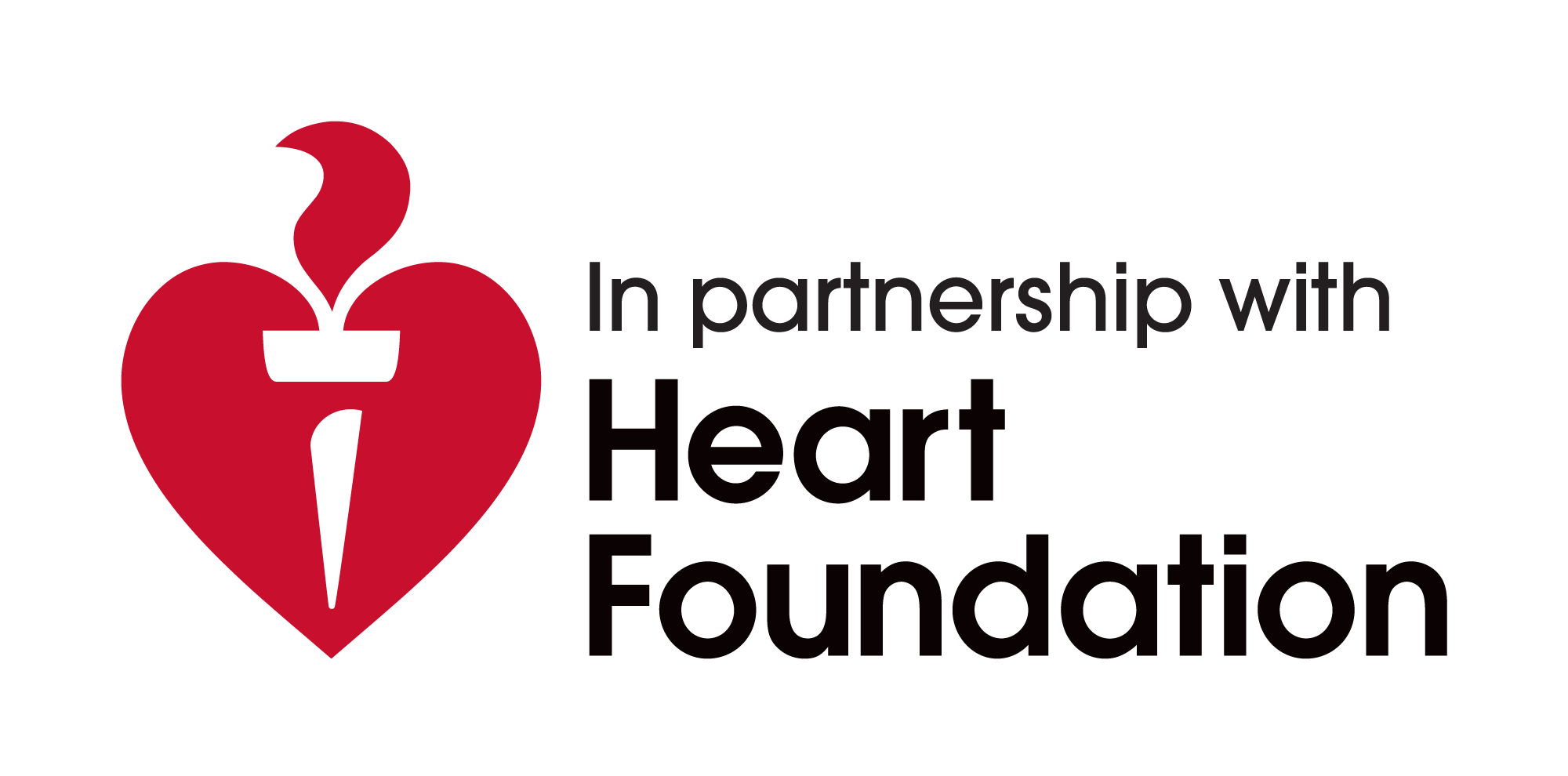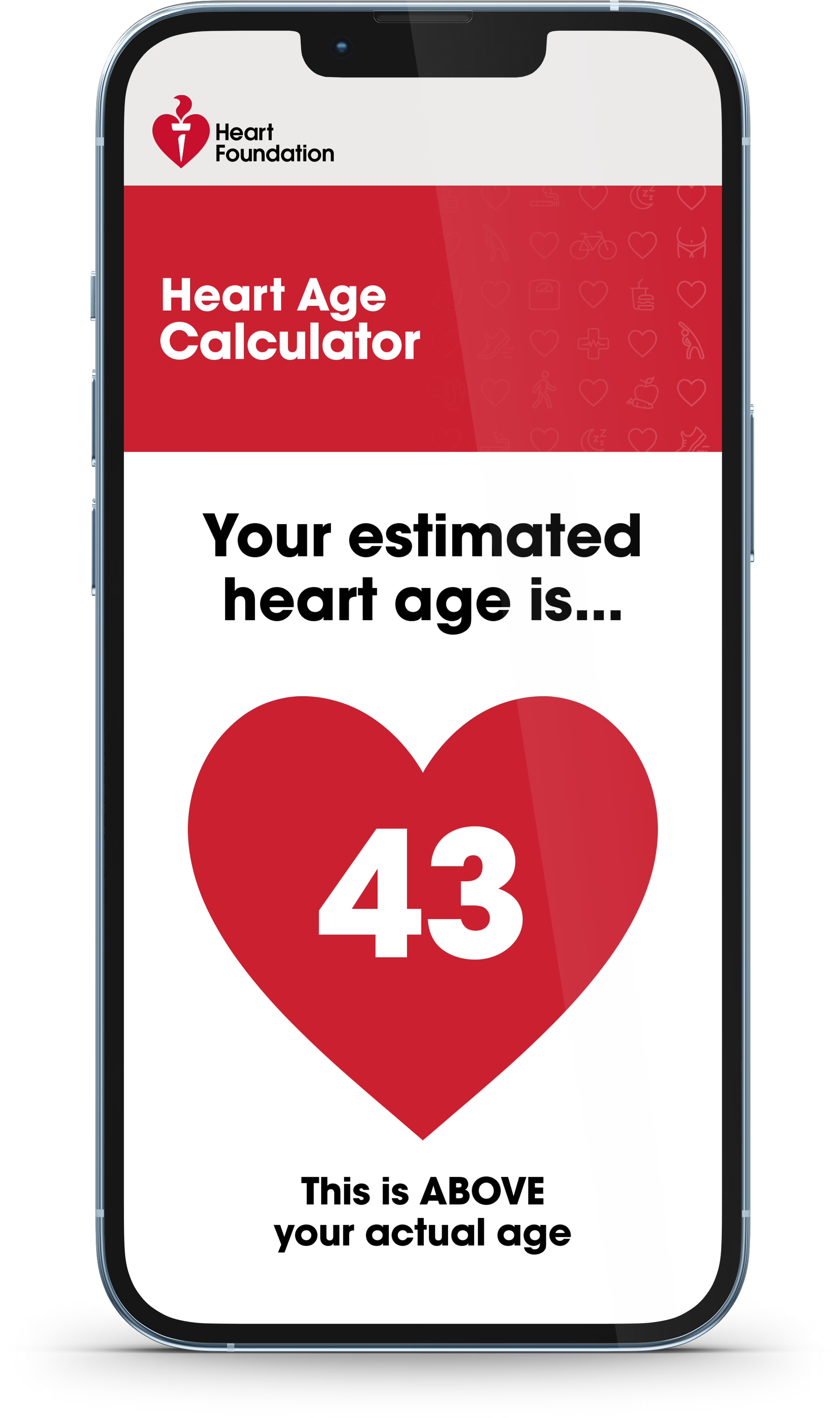- Half of Aussies have three or more modifiable CVD risk factors.
- Heart disease, including heart attacks, is largely preventable.
- Small, regular steps can be as good as taking drastic intervention to improve your heart health.


We’re committed to helping Australians live healthier lives through proactive healthcare. That’s why we’re partnering with the Heart Foundation and asking Australians to keep to the beat with TAL HeartChecker.

Over 1 million Australians are living with Cardiovascular disease (CVD), which includes heart disease and strokes.1 Lowering your risk of CVD doesn’t always require drastic intervention — it's about understanding your risk factors and making small, positive changes. That’s why we created TAL HeartChecker — to keep your heart beating strong and to put you in control of your heart health.
Understanding the dangers of high blood pressure, high cholesterol, and smoking is crucial for keeping your heart healthy and strong. Approximately 1.3 million Australian adults (6.7%) reported living with one or more heart, stroke, or vascular conditions in 2022.1 These include:
Your lifestyle plays a crucial role in preventing and managing CVD.
Causes can include smoking, inactivity, obesity and hypertension.12
Understanding your blood pressure and cholesterol levels is essential for assessing your heart health. These numbers provide valuable insights into your risk of developing CVD.
For more detailed information, visit the Heart Foundation’s website
Find out your heart age in just a few beats—then book a Heart Health Check with your GP (details below) to better understand your risk of heart attack or stroke.
Knowing your heart age is a great way to take charge of your heart health. Your heart age is an estimate of your risk of having a heart attack or stroke. If your heart age is higher than your actual age, it means you may be at increased risk of cardiovascular disease. A lower heart age suggests a lower risk compared to other people in Australia.13
Find Out Your Heart Age
The Heart Age Calculator is a simple and effective tool designed for people aged 35-75 to better understand their heart health. Scroll down now to check yours; it only takes a few minutes.
Get a Heart Health Check:14
Book a heart health check with your GP for a comprehensive assessment of your cardiovascular disease risk. This 20-minute check-up helps you understand your risk of heart attack or stroke over the next five years. Most importantly, your GP and nurse will support you in lowering your risk.
During a Heart Health Check, your GP will:
Being proactive about your heart health helps you stay in the rhythm.
Reduce your heart disease risk by increasing physical activity and eating well. Making positive changes to your lifestyle can significantly improve your heart health. Here are some key steps:6
Prioritise physical activity Regular exercise helps strengthen your heart, control blood pressure, and reduce stress. Aim for at least 30-60 minutes of moderate-intensity exercise per week. Walking 30 mins a day can reduce your risk of heart disease.16
Nourish your body: A balanced diet rich in wholegrains, fibre, vitamins, antioxidants and healthy fats supports heart health. Limit added sugar, saturated fats, and excessive sodium.
Manage stress: Chronic stress can negatively impact your heart. Incorporate relaxation techniques like meditation, yoga, or deep breathing into your routine.
Quit smoking: Smoking significantly increases your risk of heart disease. Seek support to help you quit.
Maintain a healthy weight: Being overweight or obese can strain your heart. Focus on gradual weight loss through diet and exercise.
Regular check-ups: Having a regular heart health check with your GP will help you to keep your heart healthy and better understand your risk of a heart attack or stroke.
It is also good to keep track of your resting heart rate. A normal resting heart rate is between 60-100bpm but can vary based on age and gender.18
Remember, small steps can make a big difference. Keep to the beat by incorporating one healthy habit at a time and gradually build upon your progress.


Remember, small changes can keep your heart beating strong. Start today.6
For more information, visit the Heart Foundation's website.
If you’re aged between 35-75, the first step to finding your heart-healthy rhythm begins with knowing your heart age. The Heart Age Calculator, developed by the Heart Foundation, is a simple and effective tool that estimates your heart age based on lifestyle factors and key health indicators.
To understand your heart age, it applies an algorithm that calculates the probability of experiencing a cardiovascular event in the next five years - based on a series of quick questions about your general health and lifestyle choices.
By knowing your heart age, you can have a better understanding of your risk of a heart attack or stroke, and most importantly, the positive steps you can take to live a heart healthy lifestyle.
Visit the Heart Foundation Heart Age Calculator now to begin your new rhythm of heart health.

Slice of Life is our blog that talks about everything from lifestyle to life insurance.
View all articles
1 Australian Institute of Health and Welfare “Heart, stroke and vascular disease: Australian facts”. Accessed on 28 January 2025 from
https://www.aihw.gov.au/reports/heart-stroke-vascular-diseases/hsvd-facts/contents/summary
2 Heart Foundation, “What is coronary heart disease?”. Accessed on 6 February 2025 from
https://www.heartfoundation.org.au/your-heart/coronary-heart-disease
3 Heart Research Institute, “Stroke: Symptoms, Causes and Prevention”. Accessed on 6 February from
www.hri.org.au/health/learn/cardiovascular-disease/stroke
4 Heart Foundation, “Peripheral Artery Disease”. Accessed on 6 February 2025 from
www.hri.org.au/health/learn/cardiovascular-disease/peripheral-artery-disease
5 Heart Foundation, “What is Heart Failure?”. Accessed on 6 February 2025 from
www.heartfoundation.org.au/your-heart/heart-failure
6 Heart Foundation, “What is an arrhythmia?”. Accessed on 11 February 2025 from
www.heartfoundation.org.au/your-heart/heart-arrhythmia
7 Heart Foundation, “What is acute rheumatic fever and rheumatic heart disease?”. Accessed on 11 February from
www.heartfoundation.org.au/your-heart/acute-rheumatic-fever-and-rheumatic-heart
8 Heart Foundation, “Congenital Heart Conditions”. Accessed on 11 February from
www.heartfoundation.org.au/your-heart/congenital-heart-conditions
9 Heart Foundation, “What is cardiomyopathy?”. Accessed on 11 February from
www.heartfoundation.org.au/your-heart/what-is-cardiomyopathy
10 National Heart, Lung and Blood Institute, “What Is Venous Thromboembolism?”. Accessed on 6 February from
www.nhlbi.nih.gov/health/venous-thromboembolism
11 National Library of Medicine, “Hypertensive Heart Disease”. Accessed on 6 February 2025 from
www.ncbi.nlm.nih.gov/books/NBK539800/
12 Heart Foundation, “Are you at risk of heart disease?”. Accessed on 6 February 2025 from
www.heartfoundation.org.au/your-heart/are-you-at-risk-of-heart-disease
13 Heart Foundation, “Is your heart feeling your age?”. Accessed on 28 January 2025 from
www.heartfoundation.org.au/heart-age-calculator
14 Heart Foundation, “Time to book a heart health check?”. Accessed on 6 February 2025 from
www.heartfoundation.org.au/your-heart/heart-health-checks
15 Heart Foundation, “Under pressure – what is blood pressure and why does it matter?”, Accessed on 18 February 2025
www.heartfoundation.org.au/blog/what-is-blood-pressure-and-why-does-it-matter
16 Heart Foundation, “Heart Foundation Walking”. Accessed on 18 February 2025 from
www.heartfoundation.org.au/healthy-living/heart-foundation-walking
17 Heart Foundation, “Heart Health Check Toolkit”. Accessed on 28 January 2025 from
www.heartfoundation.org.au/heart-health-check-toolkit
18 Medicine Net, “What is a Good Resting Heart Rate?”. Accessed on 3 March 2025 from
www.medicinenet.com/what_is_a_good_resting_heart_rate_by_age/article.htm
The information contained in this webpage is not a substitute for advice from a qualified medical or other health professional. It is not intended to diagnose, treat, cure or prevent any health problem. Always consult your medical practitioner or other health professional in relation to any medical issue or concern. While all care has been taken to ensure that the information provided is accurate and complete at the date of publication, neither TAL nor its employees accept liability for any loss or damage caused as a result of reliance on the information.